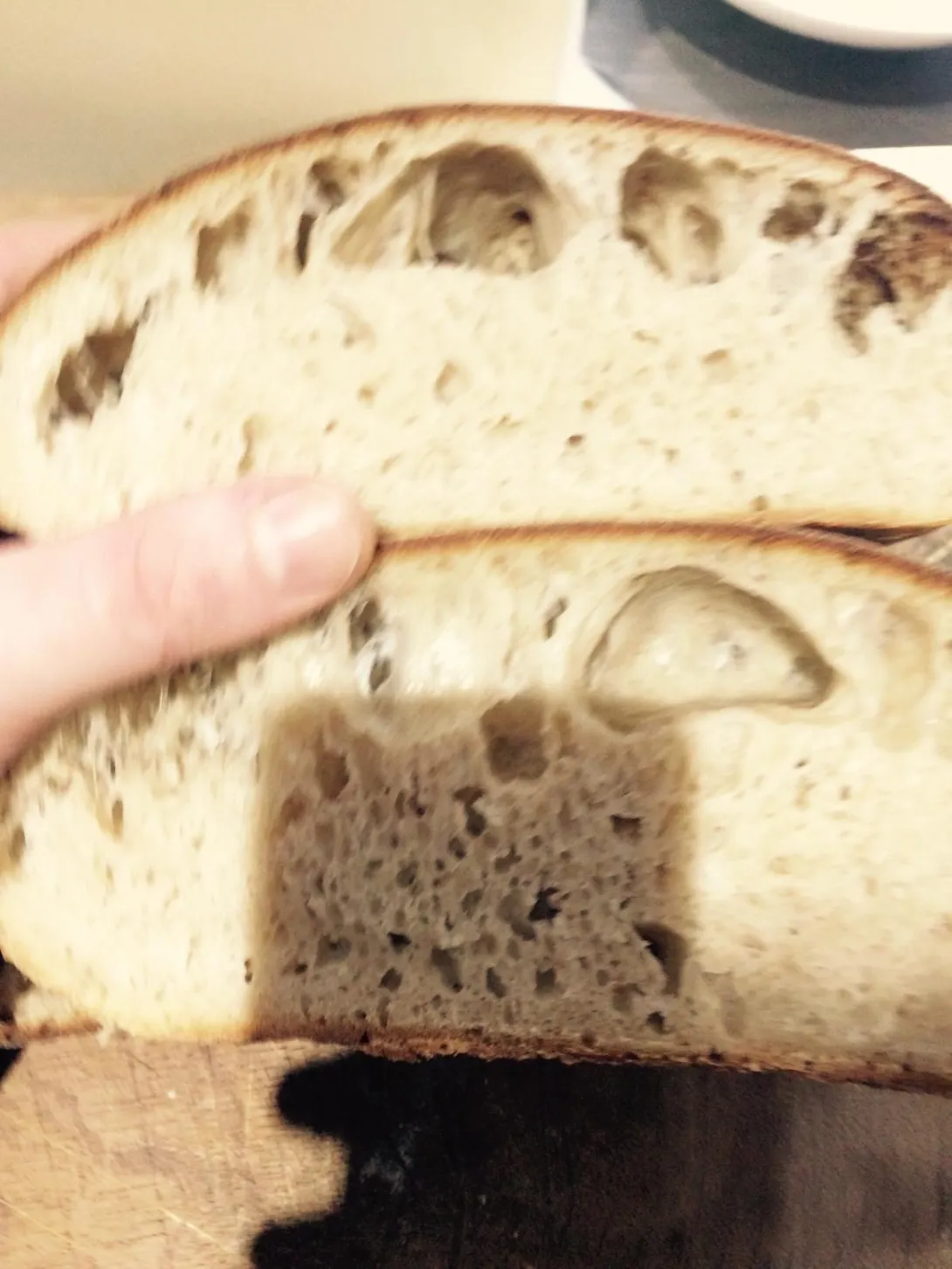
I'm basically getting large air pockets towards the top of the boules and its becoming a common theme. Is it an error in my shaping technique that causing this or is there other factors?
i will try and post some images to demonstrate what I mean.
thanks for any help!
I can get this same thing when I do a bunch (or even a modest amount) of rounding of a high hydration boule.
If I just do letter folds and perhaps some stitching, no problems. It also doesn't seem to affect lower hydration doughs in my experience.
I've also gotten something similar with too little fermentation, but I'm not seeing the evidence for that in your crumb (it looks very well fermented, too much also has its issues).
doing a letter fold and double stitch motion, then just a little roll and slight seal. No rounding. Doughs are normally around 82% to 87% hydration.
Bulk fermentation is usually around 4-6 hours, including autolyse. Then a 12-15 hour fridge prove.
But thanks for the insight!
There are several factors that can cause this. I would say shaping is not the issue here. There are several threads here on TFL talking about this. Also look for “the room where the baker sleeps”.
The big holes are known as mouse holes. It's usually caused by large gas pockets formed during the bulk fermentation process. Usually those large gas pockets are eliminated during the stretch and fold process that's done after the bulk fermentation. You don't want to agressively degass your dough at this step but you want to be aware if they are there they need to be deflated. If not eliminate during that time or during final shaping they will increase in size both during final proofing and in the oven spring process.
The other possibility is over proofing. You will know your dough is over proofed before baking by using the poke test.